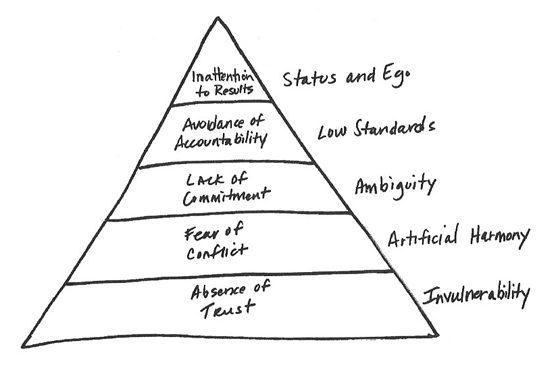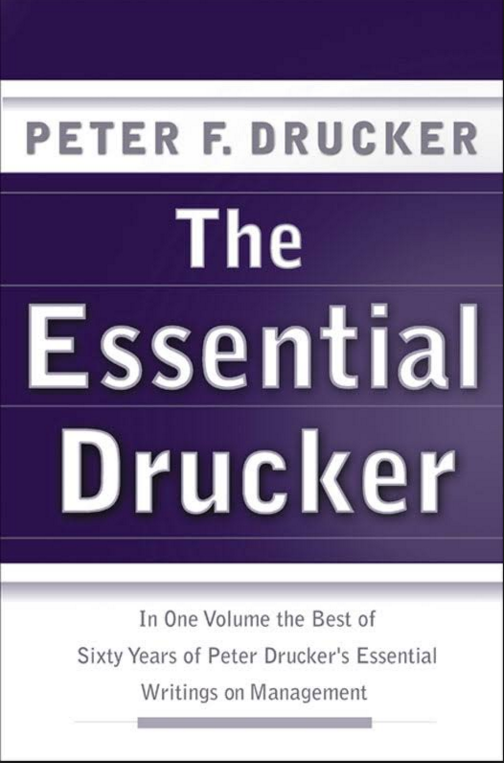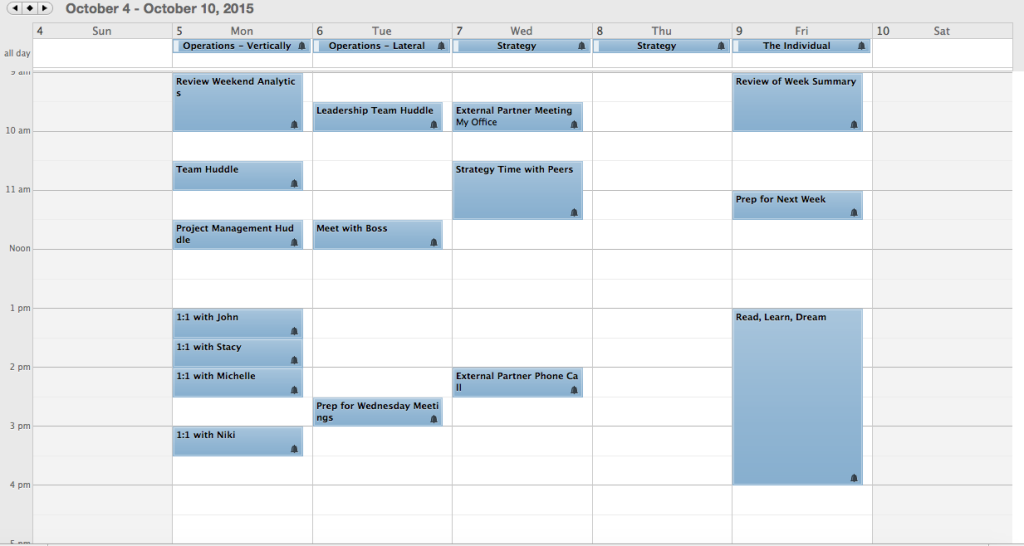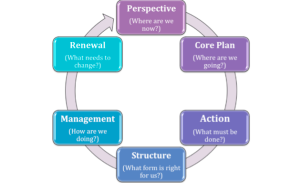Teamwork
“No man is an island,” “the wisdom of the crowd is greater than the lone genius,” etc – We’ve all heard our fair share of quotes and thoughts about working as a team. However, at my organization, we use a collaborative management style and work closely with our colleagues across departments. In an attempt to learn more about working in a team-centered environment and improve my own management skills, I read Patrick Lencioni’s “The Five Dysfunctions of a Team.”
Lencioni lists the five dysfunctions as:
Absence of Trust
Fear of Conflict
Lack of Commitment
Avoidance of Accountability
Inattention to Results
Each of these dysfunctions leads to sub-optimal results. For instance, a lack of trust prevents conflict, which in turn prevents team commitment to decisions, where no-one is held accountable and results are never measured for achievement. He uses a simple pyramid to illustrate the concept.
His writing is easy to read as he couches his ideas and principles in a story format. This particular story focuses on a leadership team with a new leader who is attempting to turn around their organization. She takes her team to multiple offsite meetings to focus explicitly on teamwork.
As the book progresses you see the personalities of each of the characters and begin to wonder which one of them is you. As I read, I definitely found myself in the situation and thought “geez – I’ve got to be a real pain sometimes!” However, it’s because of the fact that we have a level of trust on our own leadership team that I am able to be myself and provide the critical input that myself and others were hired to provide.
If you’re someone looking to lead a team and don’t have a ton of time on your hand, I’d strongly recommend grabbing a copy of this one. I’m a really, really, slow reader and was able to finish this one in about 4 hours.









